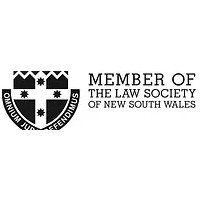Best Financial Services Regulation Lawyers in Wahroonga
Share your needs with us, get contacted by law firms.
Free. Takes 2 min.
List of the best lawyers in Wahroonga, Australia
About Financial Services Regulation Law in Wahroonga, Australia
Financial Services Regulation in Wahroonga, Australia, is a crucial legal framework that ensures the integrity, transparency, and fairness of financial markets and services. It encompasses laws and regulations that govern financial institutions, investments, consumer protection, and the conduct of financial service providers. Led by regulatory bodies such as the Australian Securities and Investments Commission (ASIC) and the Australian Prudential Regulation Authority (APRA), these laws are designed to protect investors, maintain confidence, and promote the stability of the financial system.
Why You May Need a Lawyer
There are several scenarios where individuals or businesses may require legal assistance in the area of Financial Services Regulation in Wahroonga:
- License Applications: Navigating the complex licensing requirements for financial service providers.
- Compliance Issues: Ensuring adherence to ongoing compliance obligations under Australian financial law.
- Dispute Resolution: Managing disputes between consumers and financial institutions or between companies.
- Fraud or Misconduct: Addressing cases of alleged fraud, financial misconduct, or regulatory breaches.
- Product Disclosure Statements: Crafting clear and legally compliant disclosure documents for financial products.
- Mergers and Acquisitions: Handling legal aspects of mergers, acquisitions, or restructuring within the financial sector.
Local Laws Overview
In Wahroonga, financial services are regulated under a broad set of laws including the Corporations Act 2001, the National Consumer Credit Protection Act 2009, and the Anti-Money Laundering and Counter-Terrorism Financing Act 2006. Key elements include:
- Corporate Governance: Rules concerning the management and operations of financial entities to ensure accountability.
- Consumer Protection: Laws to safeguard consumers from unfair and deceptive practices and promote fair lending.
- Market Conduct: Guidelines for conducting transparent and ethical trading in financial markets.
- Capital Requirements: Standards for financial institutions to maintain adequate capital buffers.
- Prudential Standards: Regulations to ensure the soundness of financial institutions.
Frequently Asked Questions
What is a financial services license?
A financial services license authorizes businesses to provide specific financial services, ensuring they meet regulatory standards for competence, resources, and compliance.
How do I report financial misconduct?
You can report suspected financial misconduct to ASIC, providing as much evidence and information as possible to support your allegations.
What happens if I violate financial services regulations?
Violations can result in penalties, fines, or legal action, and can include loss of license and reputation damage.
How are disputes between financial service providers and clients resolved?
Disputes can be resolved through mediation, arbitration, or legal proceedings depending on the nature and severity of the issue.
Are there any consumer protection laws in Wahroonga?
Yes, consumer protection laws are in place to guard against deceptive practices and ensure fair treatment in financial transactions.
What role does ASIC play in financial regulation?
ASIC is primarily responsible for enforcing and regulating company and financial services laws to protect Australian consumers, investors, and creditors.
How can financial institutions ensure compliance with regulations?
Institutions should implement comprehensive compliance programs, regular audits, and staff training to ensure ongoing adherence to financial regulations.
What is anti-money laundering law?
Anti-money laundering law requires financial service providers to implement measures to prevent, detect, and report money laundering and terrorism financing activities.
Do international financial service providers have to comply with Australian laws?
Yes, international providers offering services in Australia must comply with local regulations, including licensing and consumer protection laws.
How does data protection work within financial services?
Data protection laws require financial institutions to safeguard client information and ensure privacy through stringent security measures.
Additional Resources
For additional information and support, consider reaching out to the following:
- ASIC (Australian Securities and Investments Commission): Australia’s corporate, markets, and financial services regulator.
- APRA (Australian Prudential Regulation Authority): Regulates banks, credit unions, insurance companies for financial stability.
- Financial Ombudsman Service: Provides dispute resolution for consumers and financial services providers.
- Consumer Action Law Centre: A non-profit organization offering advice and advocacy for consumers.
Next Steps
If you find yourself in need of legal assistance in financial services regulation, consider taking the following steps:
- Identify and clearly articulate your specific legal issues or requirements.
- Research and contact a lawyer or law firm that specializes in financial services regulation in Wahroonga.
- Prepare all relevant documents and information before your initial consultation.
- Discuss your case thoroughly with your lawyer to understand your rights, obligations, and potential outcomes.
- Follow your lawyer’s advice and stay informed about any regulatory updates that may impact your case or business.
Lawzana helps you find the best lawyers and law firms in Wahroonga through a curated and pre-screened list of qualified legal professionals. Our platform offers rankings and detailed profiles of attorneys and law firms, allowing you to compare based on practice areas, including Financial Services Regulation, experience, and client feedback.
Each profile includes a description of the firm's areas of practice, client reviews, team members and partners, year of establishment, spoken languages, office locations, contact information, social media presence, and any published articles or resources. Most firms on our platform speak English and are experienced in both local and international legal matters.
Get a quote from top-rated law firms in Wahroonga, Australia — quickly, securely, and without unnecessary hassle.
Disclaimer:
The information provided on this page is for general informational purposes only and does not constitute legal advice. While we strive to ensure the accuracy and relevance of the content, legal information may change over time, and interpretations of the law can vary. You should always consult with a qualified legal professional for advice specific to your situation.
We disclaim all liability for actions taken or not taken based on the content of this page. If you believe any information is incorrect or outdated, please contact us, and we will review and update it where appropriate.








